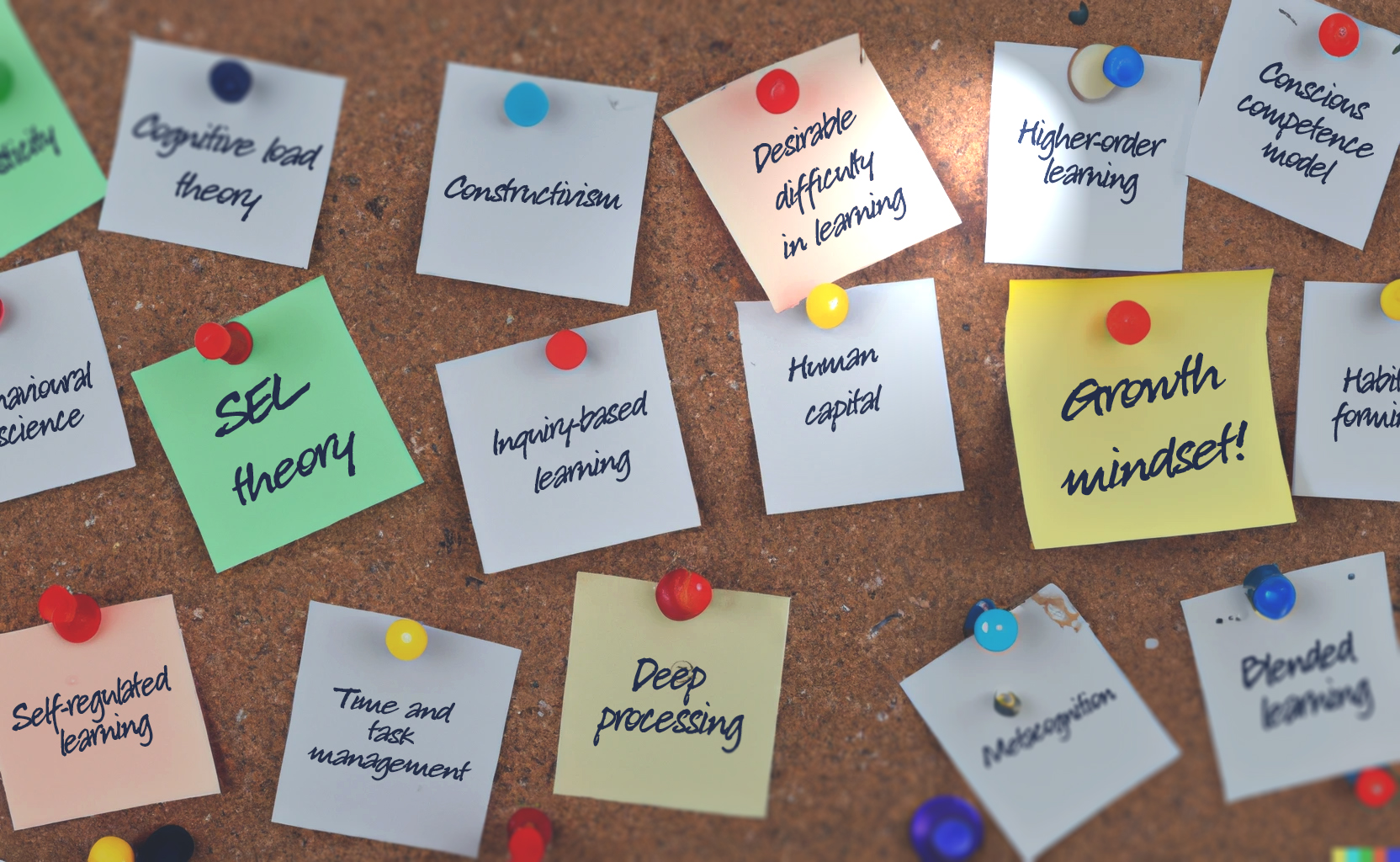 A framework for real-world learning
A framework for real-world learning
HUDLE™ is our framework to empower learners. Understanding HUDLE™ helps you understand how we think about learning and training learning skills. It equips learners with practical tools and perspectives to learn to their full potential, take learning into their own hands, and live life on their terms.
The framework includes:
- Critical principles for learning skills programs to follow
- Core components of what makes learners efficient in the real world
- Guidelines on how these skills must be trained in order to be effective and consistent
Learning to learn using HUDLE™ means taking the most efficient and safest path to learning effective skills that make a real-world impact.
HUDLE™ underpins all of our work at iCanStudy. Our programs explore each of the core principles in depth, with a practical focus.
Background: the black box of learning
In the modern world, learners need the skills to learn new knowledge and skills. Unfortunately, there is still very limited mainstream knowledge on how to learn efficiently.
Learners know that time and effort are necessary, but they are unclear on how this translates into great results. This is the black box of learning.

Many common methods are ineffective, and even effective methods can give vastly different results depending on how the learner applies them and processes information mentally.
In addition, popular apps and methods can be misleading. Many adopt an oversimplified view of learning or oversell their benefits.
As a result, learners compensate for inconsistent results, anxiety, and ineffective methods with sheer time and effort. This leads to frustration and burnout.
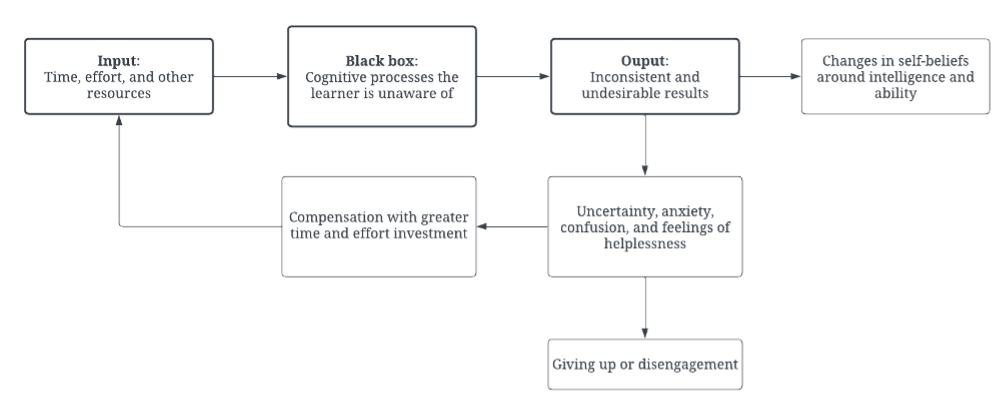
Our solution: HUDLE™
HUDLE™ is iCanStudy’s evidence-based framework for developing effective learning and self-management skills in the modern world. The acronym stands for Holistic Upskilling for Deep processing and Learning Efficiency.
HUDLE™ was designed to solve major gaps we noticed in the research. We found that:
- There is a lot of research for educators but very little on how learners can improve their own learning.
- Most frameworks think of learning too narrowly. They miss the holistic aspects of what makes an efficient learner.
- Some frameworks are based on outdated research.
- There is very little on how to train learning as a skill.
Through our years of experience, we realised that thinking of learning to learn in this way caused problems. Learners depended too much on their teachers. They used methods that were meant to be effective but saw poor results. Ultimately, we noticed that learners were lost and confused. They wanted to improve but didn't know how.
HUDLE™ is a consilient framework. This means we drew on research from multiple fields, including cognitive science, learning psychology, behavioural psychology, neuroscience, and sociology. It's also anchored in practice. We've developed this framework over 10 diligent years of application, observation, and refinement.
- Holistic
Learning never happens in isolation. Even if a technique works brilliantly in a research lab, the real-world is more complicated.
When we don't consider things like the environment, structures, and how well someone can control their learning, methods can become ineffective. The Holistic principle of HUDLE™ focuses on the things that enable learning.
These include mindset training, time and task management, focus and distraction management, goal-setting and planning.
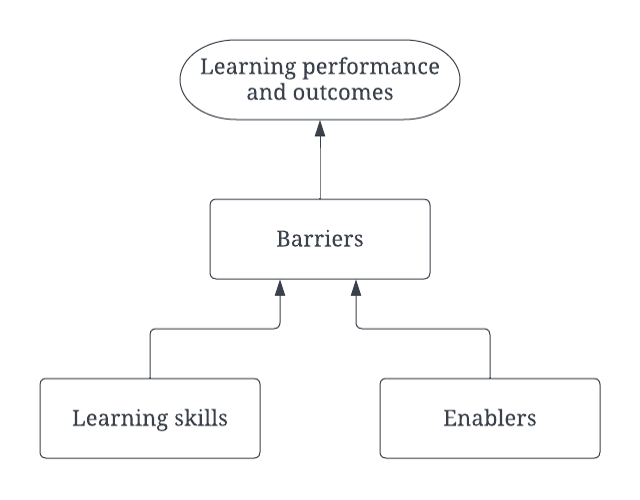
Both learning skills and enablers are needed to overcome barriers. - Upskilling
Learning is a skill. Like throwing a ball or playing an instrument, learning to learn must be treated and trained like a skill.
Unfortunately, many teachers, trainers and 'gurus' assume learning skills are acquired by simply telling someone how to use a method or two. The Upskilling principle ensures that learning skills are trained according to the research on how skills, in general, should be trained.
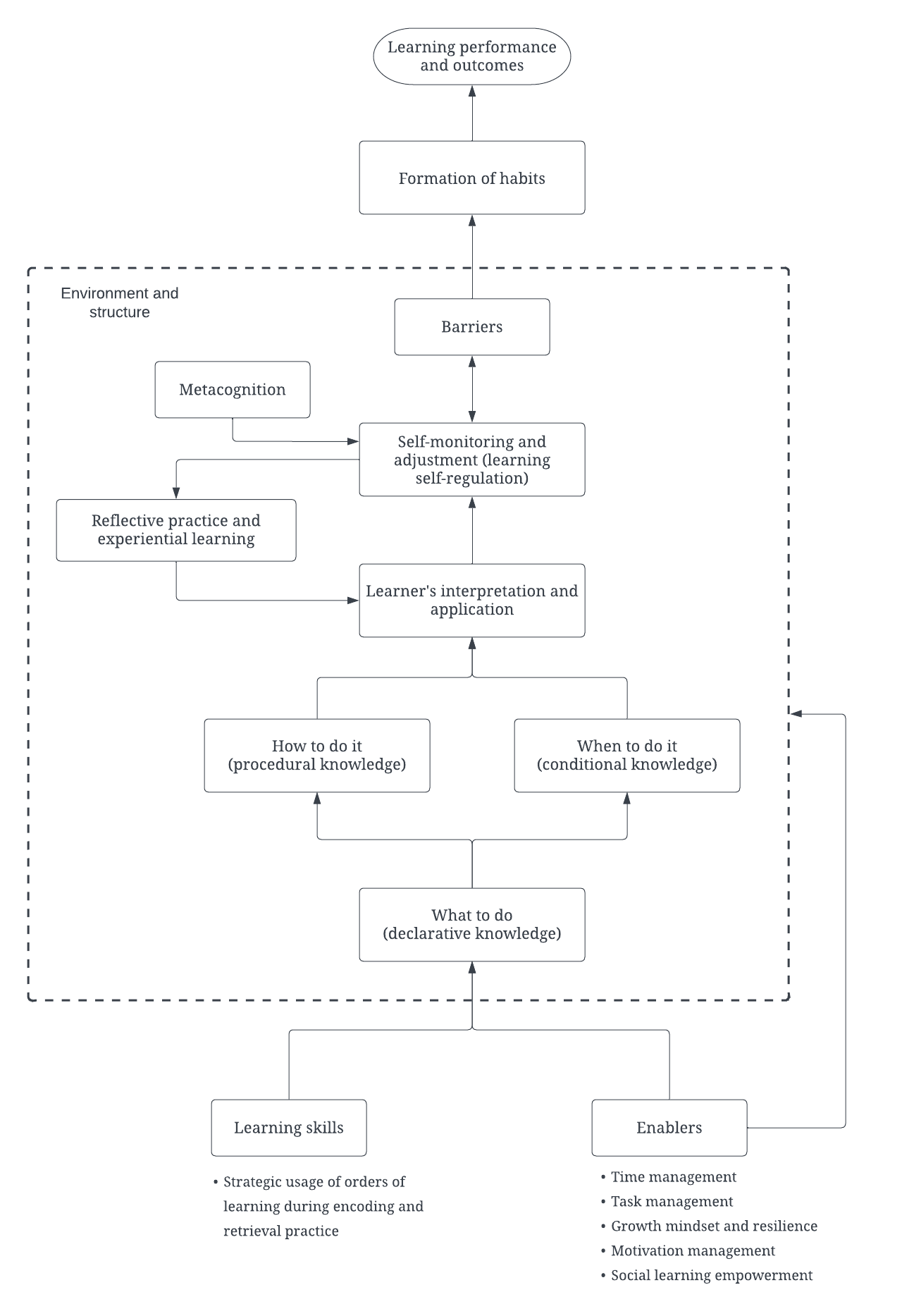
A high-level summary of how we approach upskilling for learning skills. With this principle in mind, effective training of cognitive skills must include the following:
- Balancing declarative, procedural and conditional knowledge development
- Assessing conscious competence of component and composite skills
- Embedding experiential, reflective practice
- Developing monitoring and self-regulation skills
- Providing frequent feedback on work
- Deep processing
What is "intelligence"? In many ways, it refers to deep processing.
Deep processing is the type of thinking and learning that leads to better memory and the ability to understand complex concepts. Historically, deep processing was considered fixed. We now know that deep processing is a skill that can be trained, and iCanStudy is one of the first organisations to develop a program to train it consistently.
As industry leaders in this space, we have found that training deep processing improves not only learning ability across all subjects and stages of education but also improves motivation and enjoyment of learning. On the other hand, when deep processing is ignored, learners can use the same note-taking methods or apps as top achievers and see no improvement. This is because learning happens in the brain, not in their notes or apps.
This principle of HUDLE™ emphasises the importance of actively training deep processing. Teaching methods without prioritising deep processing is like teaching someone how to fish when their fishing rod is made of straw.
Read more about how we conceptualise deep processing with our technical documents on our "How it works" page here.
- Learning efficiency
Even the most effective technique is useless if it takes too long. Modern learners need methods that can perform under constant time pressures.
This principle of HUDLE™ focuses on viewing the opportunity cost of learning methods. Learning skills must not only be evaluated against their ability to retain new information. It must also be measured on the quality of learning, the ability to use and manipulate knowledge for the learner's requirements, and the time it takes to achieve all these.
You can learn more by reading our technical papers available on our "How it works" page here.
Ongoing research
The concepts in our HUDLE™ framework are the subject of ongoing research in collaboration with Monash University. Our research projects are exploring how our novel methods of training learning skills create long-term impact on career success, well-being and job satisfaction among adult learners.
Follow our social media and subscribe to our newsletter to stay updated on publications and research findings (or to participate in the research yourself)!
How HUDLE™ impacts our programs
Our training programs follow all the guidelines and principles dictated in the HUDLE™ framework. As a result, you can expect to learn a set of skills that translates into real-world impact. Thanks to the Upskilling principle, you can also expect to learn these skills in the fastest and safest possible way.
The problem with online learning
Most online learning platforms focus on delivering content. Their primary metrics of success are online engagement, retention, and number of logins. More advanced systems include gamification to create positive reinforcement.
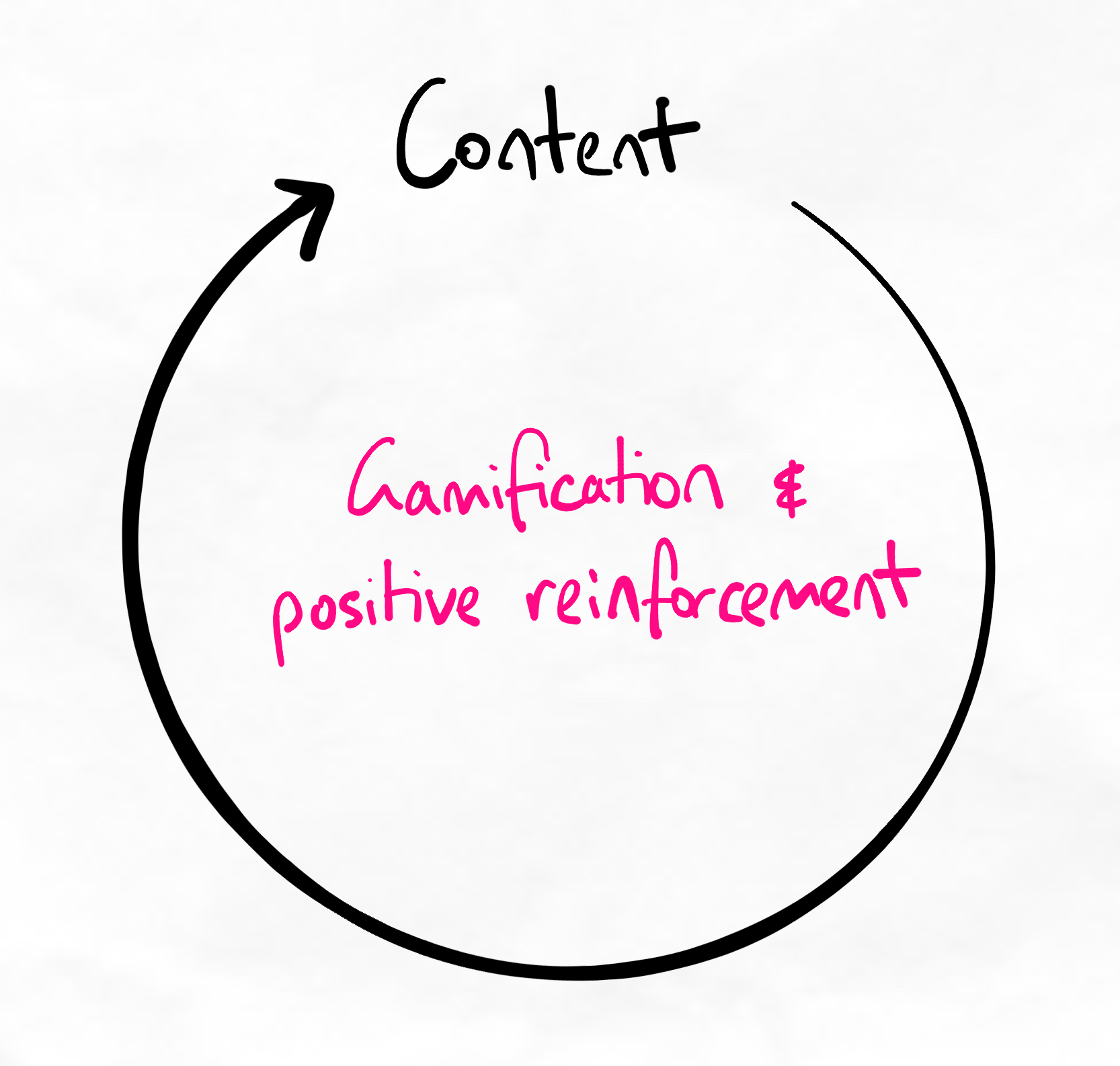
This design is perfect for entertainment platforms such as YouTube and Netflix. However, this kind of platform is disastrous for cognitive skills development. The consequences are clear when we look at the repercussions of keeping someone in an "engaged" content consumption mode.
While content can be "crammed", skills cannot. Therefore, when learners are continuously incentivised to consume more content, it creates an imbalance of theory vs. practice. This causes cognitive overload.
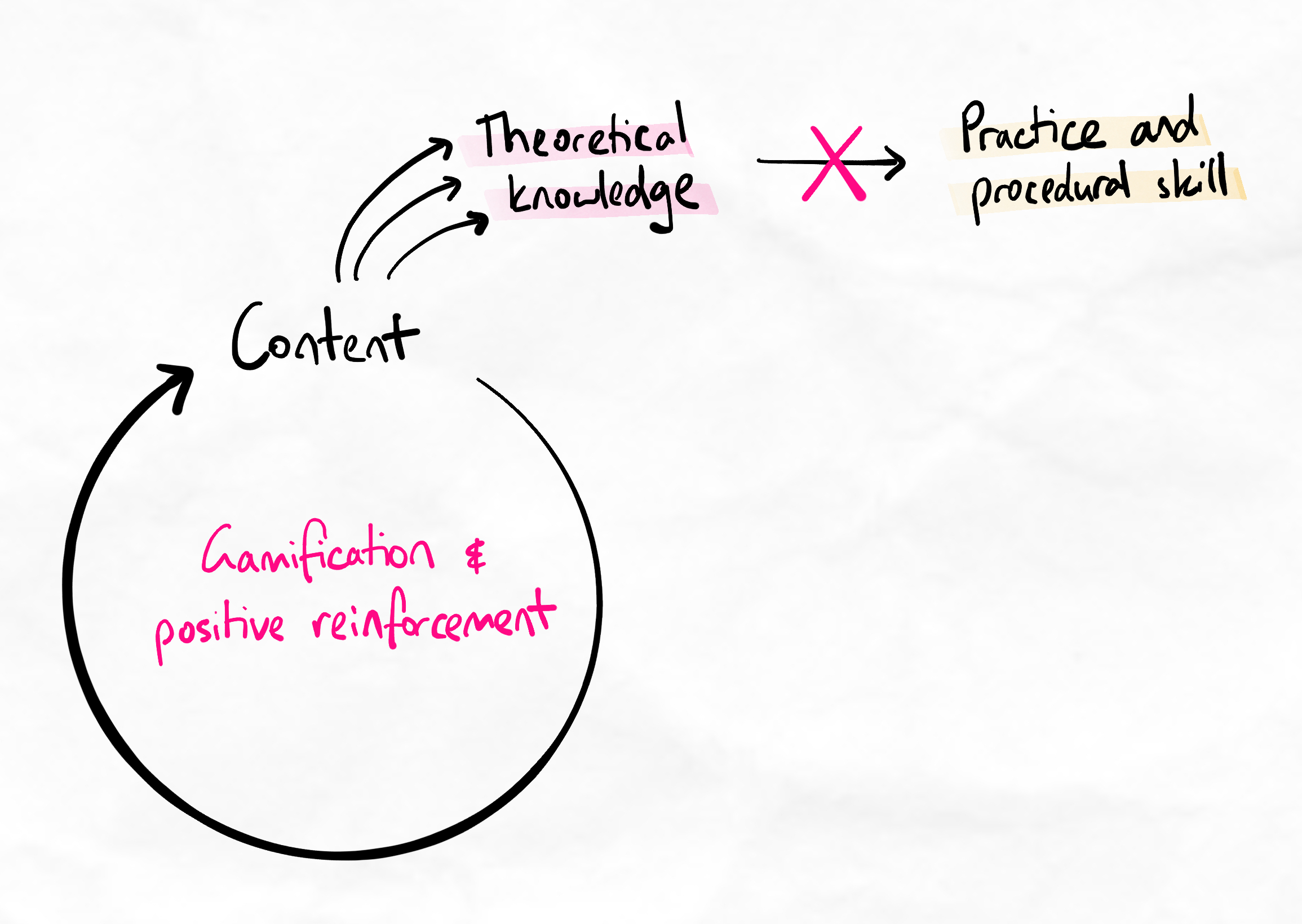
Our solution: the theory-practice cycle
Instead of measuring meaningless metrics like log-ins per week, we placed learning at the centre. The priority for an online learning platform teaching skills rather than content is to incentivise real-world skill development. The process is as follows:
- Learners consume content and gain theory online
- Learners are guided offline to practise new theory and techniques with focus and clear instructions
- Learners are given feedback on their practice as part of a feedback loop.
The new learning cycle is shown below.
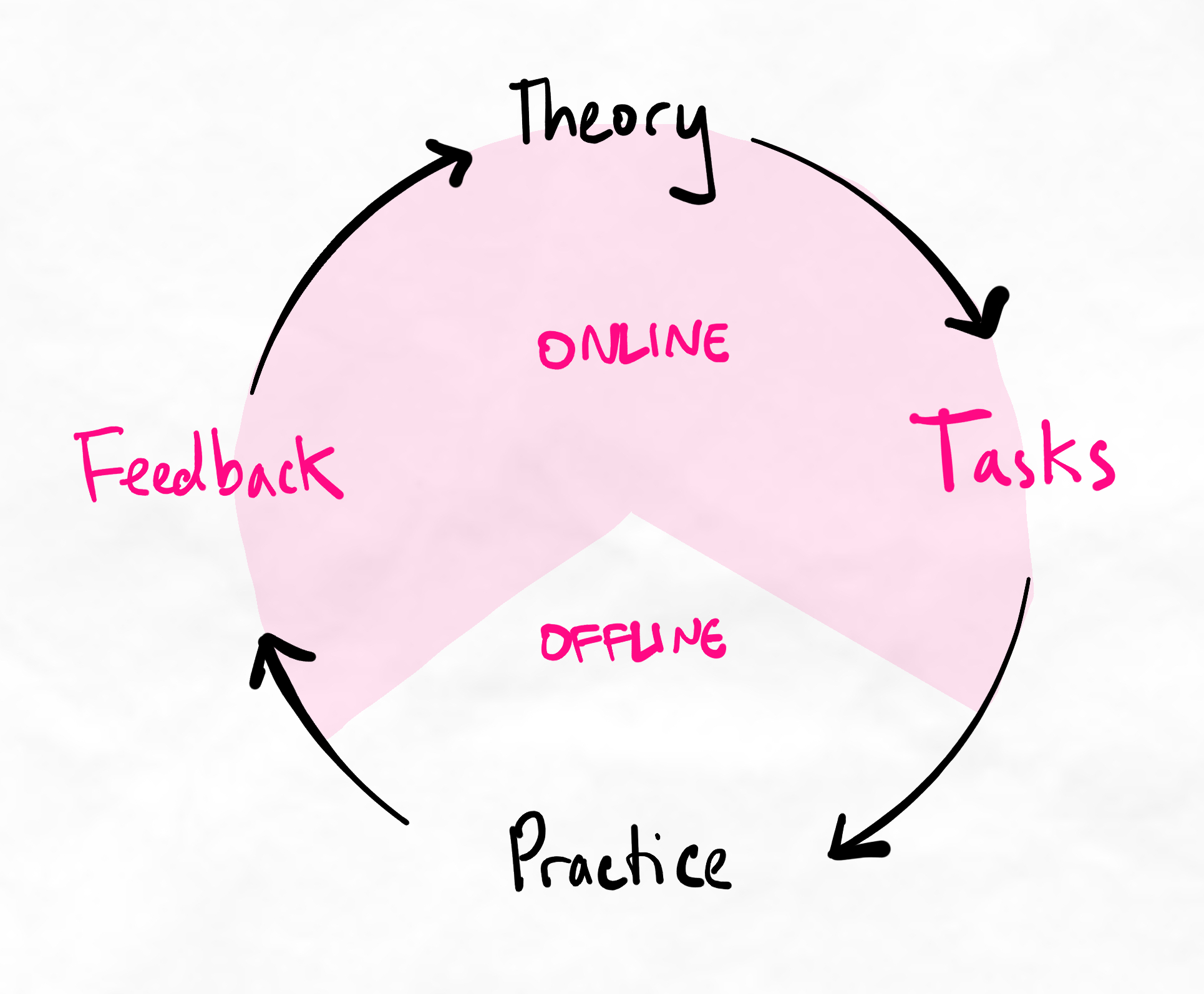
Our program anchors each major concept and technique with carefully designed tasks and instructions that help turn theoretical knowledge into real-world skills. Learners are then brought back online to receive feedback on their work to close the feedback loop.
But we can do better.
By teaching learners how to give themselves accurate self-feedback, we not only train the critical skill of metacognition and reflective practice, but we dramatically increase skill development speed by shortening the feedback cycle.
This experience can be enhanced even further by incorporating elements of social learning and communities of practice to improve behavioural change, habit creation, and accelerate identity formation.
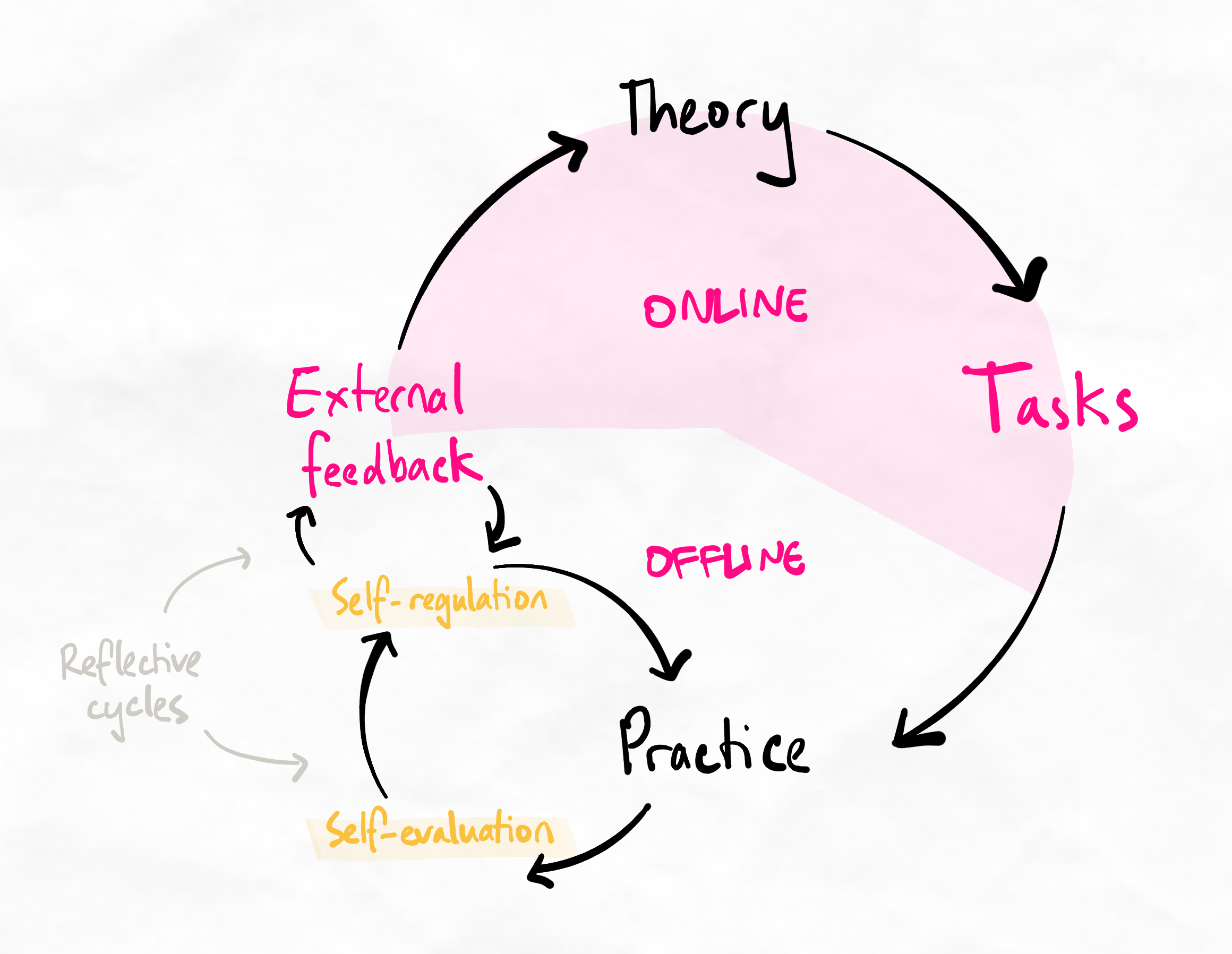
The impact
By enhancing our theory-practice cycle, we are able to train learners with potentially highly complex systems of learning at massive scale, with low error rates, high error handling capacity, and multiple times faster (due to the addition of multiple shorter feedback loops) than traditional forms of online training.
Learn more about our programs and see what's right for you here.